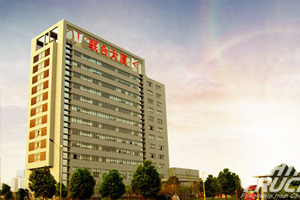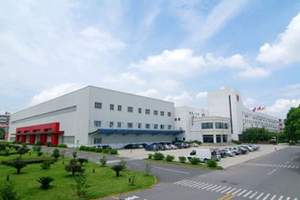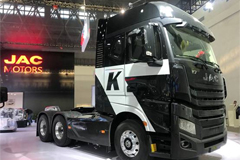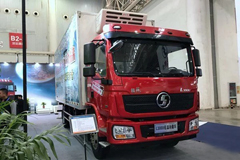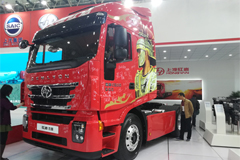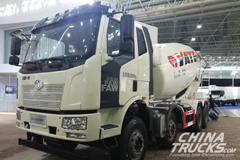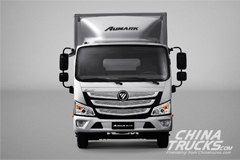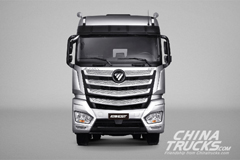New Area of Business: Bosch to Develop Components for Hydrogen Electrolysis
Stuttgart and Renningen, Germany – When it comes to green hydrogen, Bosch is stepping on the gas: in the interest of effective climate action, the company is planning not only to use this new fuel, but also to be one of the companies producing it. This is why Bosch is branching out into the development of components for electrolyzers, which use electrolysis to split water into hydrogen and oxygen. Ideally, the electricity for this purpose is generated from renewable sources such as wind or photovoltaic power, in which case the result is known as “green hydrogen”. “We cannot afford to delay climate action any longer, so we aim to use Bosch technology to support the rapid expansion of hydrogen production in Europe,” said Dr. Stefan Hartung, chairman of the board of management of Robert Bosch GmbH, at the presentation of the company’s annual figures . “To do this, we will leverage our know-how in fuel-cell technology,” added Dr. Markus Heyn, member of the board of management of Bosch and chairman of the Mobility Solutions business sector. Drawing on this expertise, Bosch will assign the development of electrolyzer components to the Mobility Solutions business sector, investing up to 500 million euros in this venture by the end of the decade. In light of energy diversification, the move away from fossil fuels, and the need to reduce CO2 emissions, demand for green hydrogen is growing rapidly – not only in energy-intensive industries such as steel, chemicals, and heavy-duty freight, but also in private real estate. According to the EU, demand is set to rise to some ten million metric tons a year by 2030. Bosch forecasts that the global market for electrolyzer components will increase to a volume of around 14 billion euros over the same period, with Europe set to see the highest rates of growth. To help business and society reduce dependency on fossil fuels and harness new forms of energy, Bosch intends to invest some three billion euros in climate-neutral technology, such as electrification and hydrogen, over the next three years.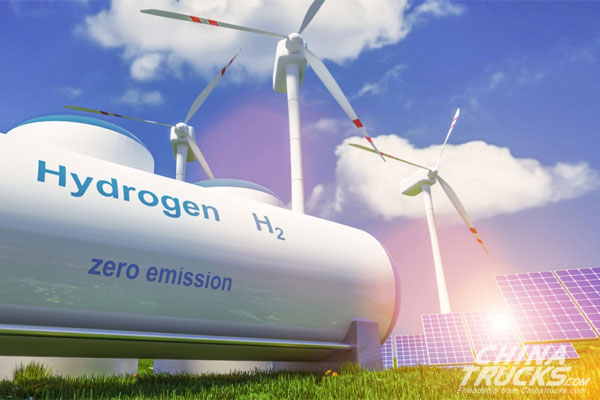
We cannot afford to delay climate action any longer, so we aim to use Bosch technology to support the rapid expansion of hydrogen production in Europe””
says Dr. Stefan Hartung, chairman of the board of management of Robert Bosch GmbH
Bosch is to develop the stack – the core component of an electrolyzer
As in the fuel cell, the key component of an electrolyzer is a stack, which comprises several hundred individual cells connected in series. In each of these cells, electricity is used to split water into hydrogen and oxygen. This is the reverse of what takes place in a fuel cell, where electricity is generated by combining hydrogen and oxygen. In both cases, the chemical reaction is facilitated by means of a proton-exchange membrane (PEM). Bosch is collaborating with a number of partners to develop a way of combining the electrolyzer stack with a control unit, power electronics, and various sensors to create a “smart module”. With pilot plants scheduled to commence operation in the coming year, the company plans to supply these smart modules to manufacturers of electrolysis plants and industrial service providers from 2025 onward.
Using a simple process, Bosch will incorporate a number of these compact modules. They can then be used both in smaller units with capacity of up to ten megawatts and in gigawatt-rated onshore and offshore plants – whether in new-build projects or in existing plants for conversion to the production of green hydrogen. To maximize the efficiency of hydrogen production and extend the service life of the stack, the smart modules are to be connected to the Bosch cloud. At the same time, the use of a modular design for the electrolyzers is expected to make maintenance more flexible: any scheduled work will require the shutdown of certain sections of the plant only, instead of the entire facility. Bosch is also working on service concepts that will include the recycling of components in order to promote a circular economy.
Bosch can use its strengths in mass production and economies of scale
Unlike many of the electrolyzer components currently on the market, the Bosch smart modules will be mass produced. As such, the manufacturing operation will generate economies of scale. “Two key factors are involved in ramping up hydrogen production: speed and cost,” Heyn said. “This is where we can play to our strengths, thanks to our expertise in mass production and our automotive know-how.” Bosch is now planning to start volume production as quickly as possible at a number of European locations. These include Bamberg and Feuerbach (Germany), Tilburg (Netherlands), Linz (Austria), and České Budějovice (Czech Republic).
Bosch portfolio expansion will safeguard jobs
The ongoing transformation of the automotive sector presents a huge challenge for the industry as a whole. As ever, Bosch’s response here is to innovate. In entering a new field of business – one that will add a nonautomotive wing to its mobility solutions business – the company is seizing the opportunity to further safeguard employment. In the coming years, this expansion into electrolyzer components is expected to create work for hundreds of associates. “In fact, we’re doing three things at once,” Heyn said. “We’re making an important contribution ecologically, economically, and socially.”
Bosch is working on mobile and stationary fuel cells
Bosch firmly believes in hydrogen as a future fuel, and is also working on both stationary and mobile fuel cells. One intended use for the former is as small, on-site power plants for cities, data centers, shopping malls, business parks, and as charge spots for electric vehicles. Bosch plans to use mobile fuel cells to facilitate the climate-neutral shipping of goods and commodities, initially by truck. The company’s portfolio of vehicle-related products in this field ranges from individual sensors to core components such as the electric air compressor, the stack, and complete fuel-cell modules. Production is expected to start this year.
Views:0
- Auto Shanghai: Bosch Presents Innovations for Electrification and Automation 2023-04-18
- BOSCH Qingling Hydrogen Fuel Cell Project Officially Kicks off in Chongqing 2021-12-29
- Feichi Launches First Hydrogen-Powered Truck in South America 2024-09-12
- JAC Hydrogen Heavy Truck Push for Green Hydrogen Development in Anhui 2024-08-16
- World's First Hydrogen-Swapping Heavy Truck Unveiled 2024-08-14
- XCMG Unveils New Hydrogen Fuel Cell Heavy Truck with Over 800km Range 2024-08-01
- 2023 Global Energy Transition High-level Forum Opened in Beijing 2023-09-21
- XCMG Delivered 100 hydrogen-fueled heavy trucks to Sinosynergypower 2022-12-14
- Cummins Participates in the 6th Foshan Hydrogen Expo(CHFE 2022) in China 2022-11-17
- DHL China Launched a Pilot Project for Hydrogen-fueled Trucks 2022-09-13
Submit Your Requirements, We Are Always At Your Service.
- Jiefang Partners with FCTS to Develop Hydrogen-Powered Car Transport Vehicles
- Farizon Auto Sets Roadmap for Global Expansion
- JMC Assembles Kaiyun Euro 5 Models in Vietnam
- SuperPanther Teams up with DHL for Sustainable Logistics
- SuperPanther Partners with Steyr Automotive to Launch Electric Heavy-Duty Trucks
- JAC Showcases T9 EV Pickup at 2024 EVA Frankfurt Electric Vehicle Expo
- Zoomlion Reports Record Overseas Revenue Growth for H1, 2024
- Madagascar President Rajoelina Visits Foton Motor
- European Premiere for Kia PBV at IAA Hannover 2024
- SAIC Maxus RV Debuts at Düsseldorf Caravan Show in Germany
- Heavy Truck Sales Reach 59,000 Units in July in China
- Tractor Sales in H1, 2024 Reached 162,100 Units, Up 4%
- China's Truck Export Reaches 351,076 Units in H1 2024
- XCMG Dominates 2024 with Record Sales in New Energy Heavy Trucks
- Mid-Year Pickup Market Report: JAC Exports Up 13%, JMC Exceed 36,000 Units
- Truck Exports in May 2024: China Exported Close to 65,000 Trucks
- Exports of Pickups Reached 22,892 Units in May
- Exports Surge by 157%! DFAC Exports 9,628 Vehicles from January to May
- China's Heavy Truck Exports Rising 58% YOY to 276,000 Units in 2023
- China Exported 507,000 Trucks from Jan.-Sept., Up 21% YoY


